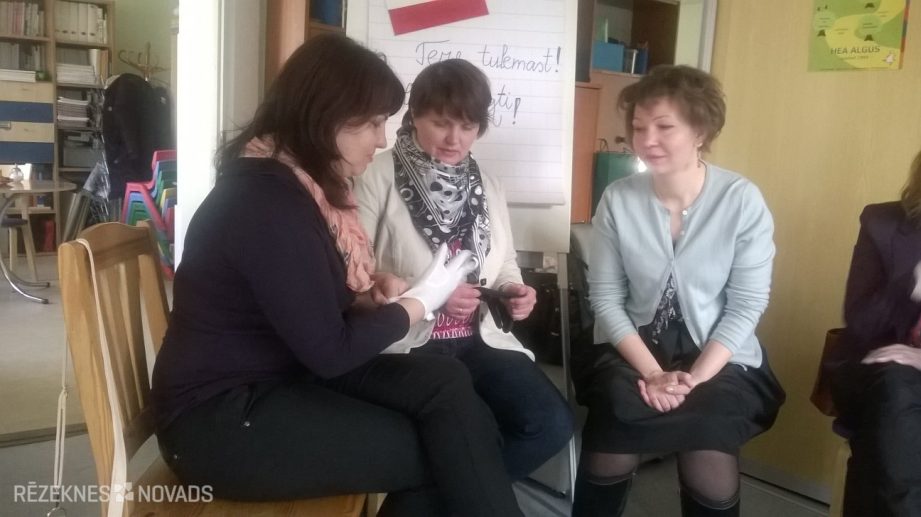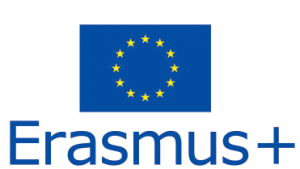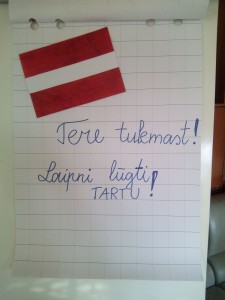Adult learners acquire knowledge in Estonia

In the spring of spring, 23 and 24 April, the Erasmus + K1 activity project “hub for the future”, adult educators from Rezekne municipality took part in training in Tartu, Estonia. In cooperation with the “Hea Algus” non-governmental organisation, the participants identified a neighbouring country's system for supporting and educating families.
In the two-day training, participants took part in activities led by Hea Algus family support specialists and supplemented knowledge of positive education methods, parental responsibility, and the development of cooperation between institutions and organisations and the provision of quality support services to parents. While visiting the Agrenski Foundation's family center, Annelinna's youth and family center, Tahtvere's open women's centre and Tahtvere in the day care centre, representatives of Rezekne municipality could see an example of how to organize work with parents from the perspective of different groups of society. During all visits, participants had the opportunity to observe daily work, participate in the active learning process, and discuss topics and topics of interest.
In Estonia, a major role in working with the family is non-governmental organisations, where the minimum number of services to be provided can receive a national target grant, as well as offering services to local governments.
On the basis of the experience of the Estonian partners “Hea Algus”, it must be concluded that the approach to family education needs to be changed in the future, as the main practice of the Rezekne municipality is to be changed in the future: various seminars for parents in educational institutions - schools and kindergartens - do not give optimal results, as often parents have negative emotions, which are still associated with school and teachers from childhood. It is advisable to establish a family education centre or similar organisation (s) and practice that seminars and other forms of training are carried out by adult educators outside the educational institutions, so that more and more parents are involved, informed and educated about how to be knowledgeable parents and support their children.
By visiting family support institutions with which the Hea Algus Training Centre is closely cooperating, the participants persuaded the cooperation of well-organised bodies, the effectiveness of team work, working with social risk groups for children, young people, families. During training courses, various working methods were offered, operating in practice, showing potential directions to work with parents and families. The journey has given positive satisfaction and inspires full feedback on the experience gained, the initiative for further pedagogical work and personal growth.
The social pedagogy, a member of the project “hub for the future”, Lily Šodnaka shares the vision: “the journey was impressive. There was an opportunity to explore the experience of Estonian support and crisis centres with parents and children. The main task of the centres is to help and support families in both educational and supporting work, creating positive and socially emotional relationships between family members. Working with families takes place in groups, individually, as well as in organising joint activities for family salting. In Estonia, families have many different ways to turn to help and support. The necessary assistance can be addressed both to families with children, pregnant women and women who are victims of violence.
It was very good that close systematic cooperation was established between the centres, mutual support that strengthens the activities of the centres. '
The main lessons learned during the journey:
(1) A stable support system and a high level of co-operation (cooperation).
(2) The progress of the support measures is focused on the child.
3) the main objective is to enhance the well-being of the family by educating it in all the areas necessary for life.
(4) In a socially-emotional area, knowing parents are an opportunity for a child and family, the most important on which work is based, is to teach parents how to drive a child positively and make the family more friendly.
(5) The problem-solving resource is an organized educational environment in the institution, positive, beneficial interaction for all pedagogical workers.
Iveta bridge
Co-ordinator of the project “hub”
“Hug for the future”
Contract No 2014-1-LV01-KA104-000218

